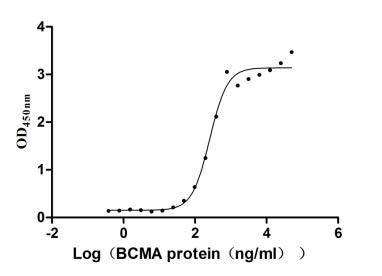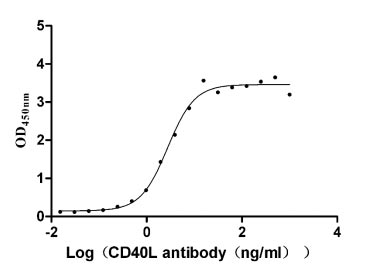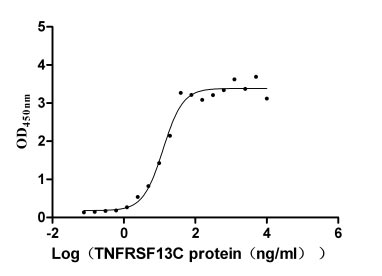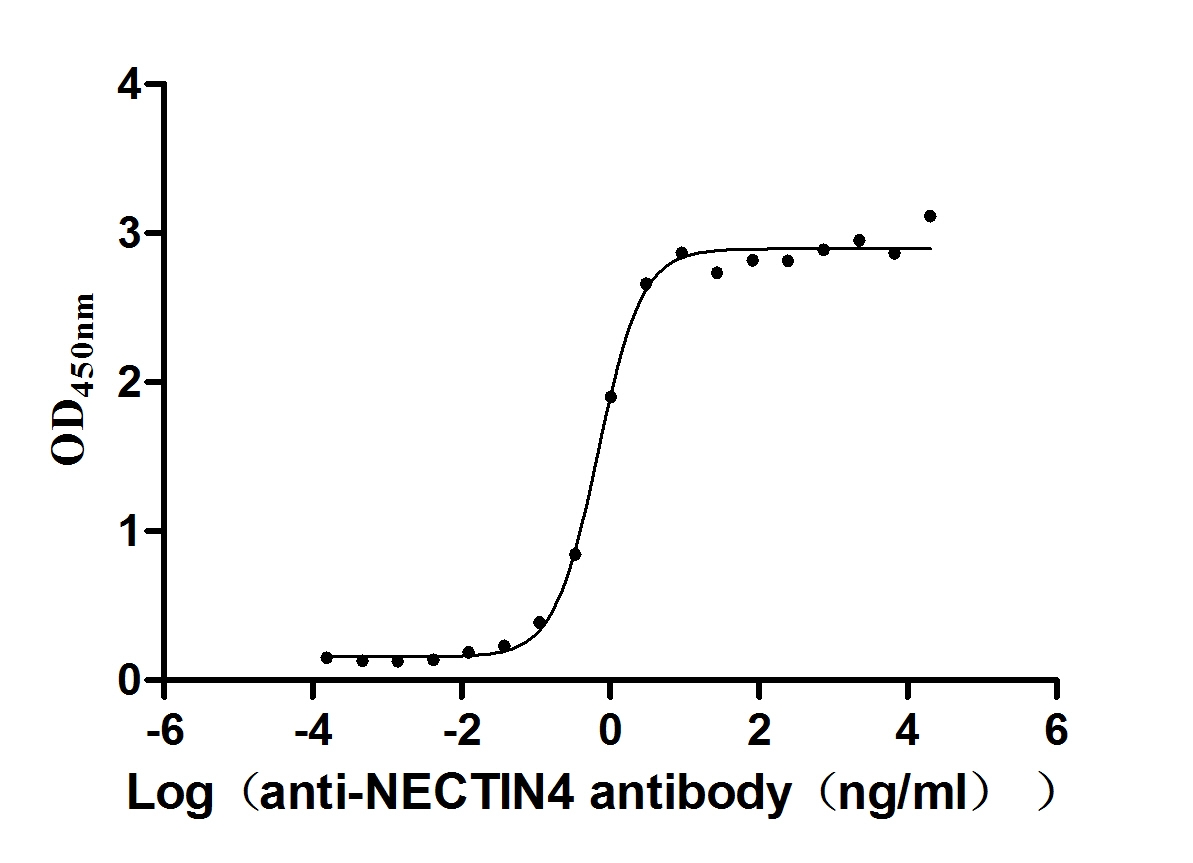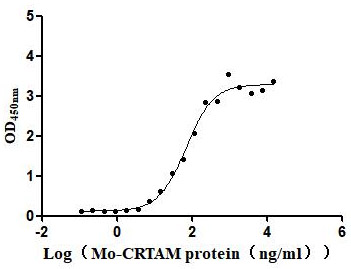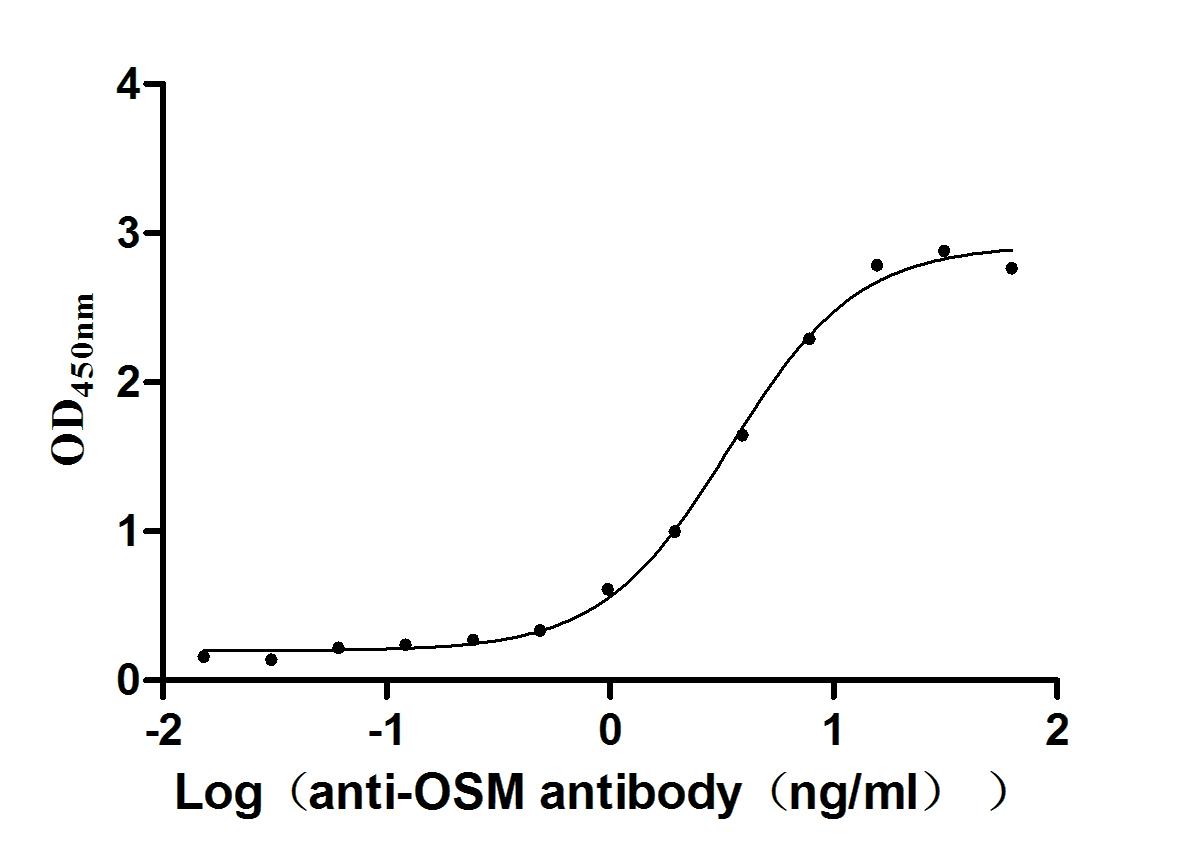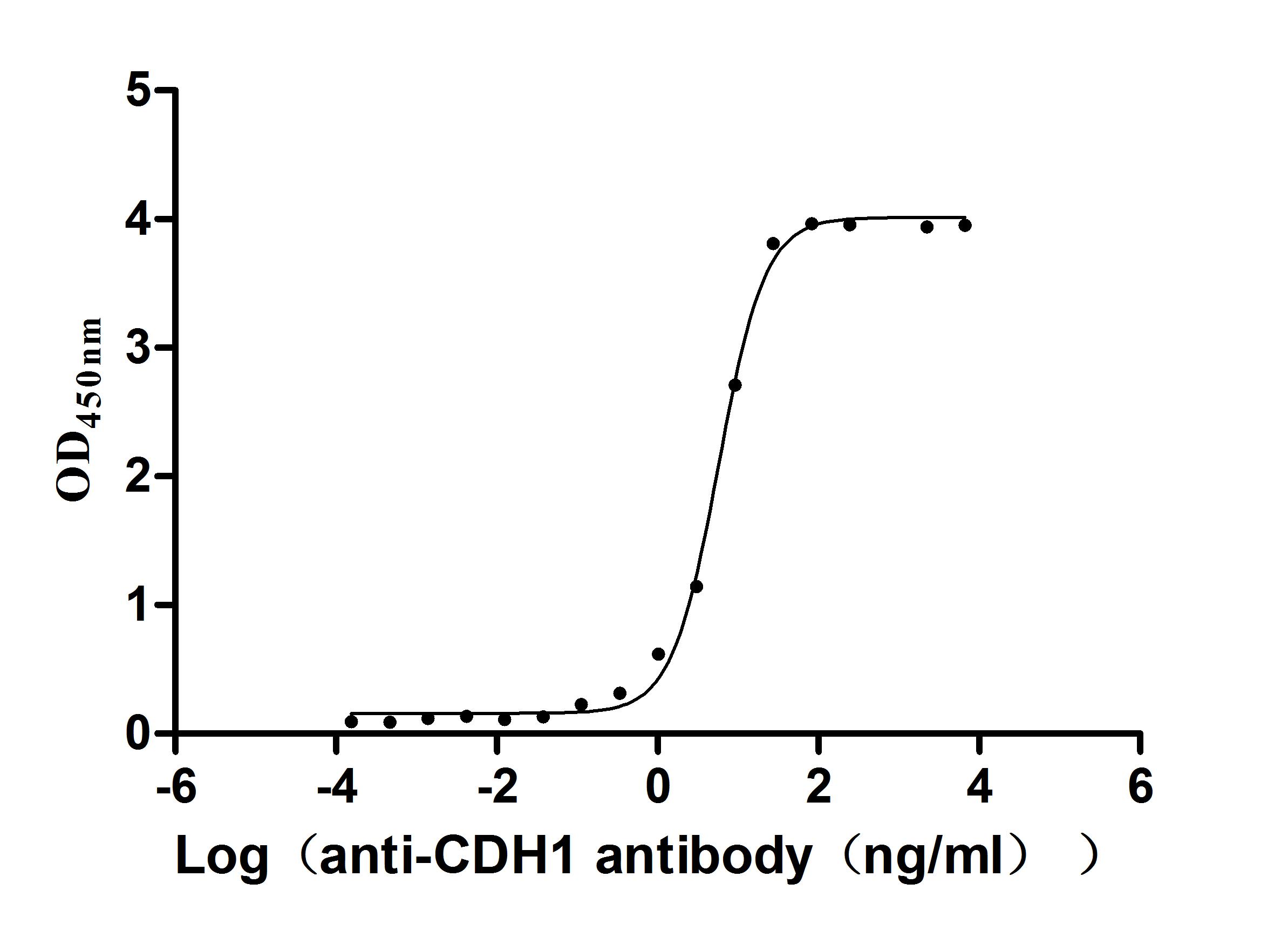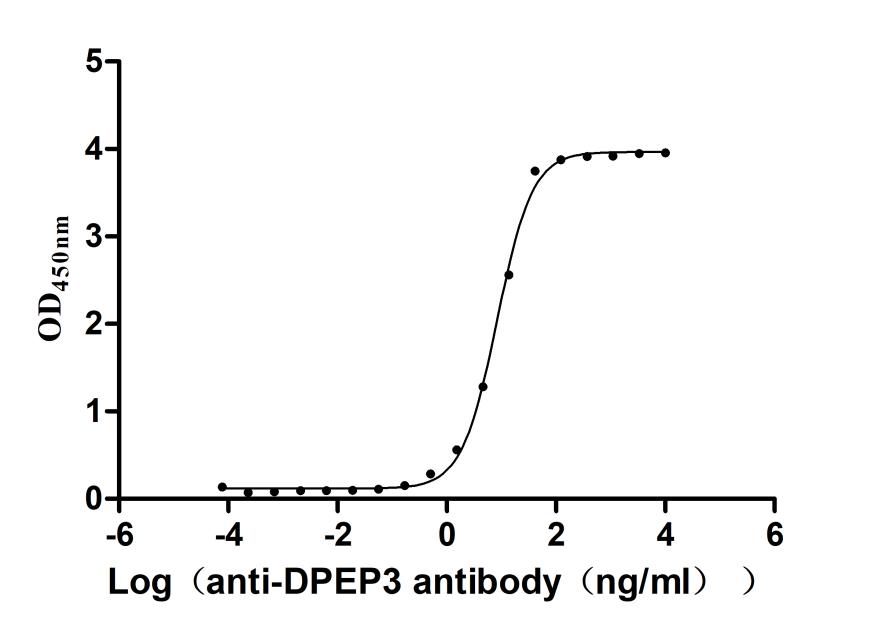Recombinant Human Glutathione S-transferase Mu 3 (GSTM3)
-
货号:CSB-YP009982HU
-
规格:
-
来源:Yeast
-
其他:
-
货号:CSB-EP009982HU-B
-
规格:
-
来源:E.coli
-
共轭:Avi-tag Biotinylated
E. coli biotin ligase (BirA) is highly specific in covalently attaching biotin to the 15 amino acid AviTag peptide. This recombinant protein was biotinylated in vivo by AviTag-BirA technology, which method is BriA catalyzes amide linkage between the biotin and the specific lysine of the AviTag.
-
其他:
-
货号:CSB-BP009982HU
-
规格:
-
来源:Baculovirus
-
其他:
-
货号:CSB-MP009982HU
-
规格:
-
来源:Mammalian cell
-
其他:
产品详情
-
纯度:>85% (SDS-PAGE)
-
基因名:GSTM3
-
Uniprot No.:
-
别名:brain GST; brain type mu glutathione S transferase; glutathione S alkyltransferase M3 ; glutathione S aryltransferase M3; glutathione S transferase M3 (brain); glutathione S transferase M3; Glutathione S transferase Mu 3 ; glutathione S transferase, Mu 3 ; Glutathione S-transferase Mu 3; GST class mu 3; GST class-mu 3; GST5; GSTB; Gstm3; GSTM3-3; GSTM3_HUMAN; GTM3; hGSTM3-3; MGC3310; MGC3704; S (hydroxyalkyl)glutathione lyase M3
-
种属:Homo sapiens (Human)
-
蛋白长度:Full length protein
-
表达区域:1-225
-
氨基酸序列MSCESSMVLG YWDIRGLAHA IRLLLEFTDT SYEEKRYTCG EAPDYDRSQW LDVKFKLDLD FPNLPYLLDG KNKITQSNAI LRYIARKHNM CGETEEEKIR VDIIENQVMD FRTQLIRLCY SSDHEKLKPQ YLEELPGQLK QFSMFLGKFS WFAGEKLTFV DFLTYDILDQ NRIFDPKCLD EFPNLKAFMC RFEALEKIAA YLQSDQFCKM PINNKMAQWG NKPVC
-
蛋白标签:Tag type will be determined during the manufacturing process.
The tag type will be determined during production process. If you have specified tag type, please tell us and we will develop the specified tag preferentially. -
产品提供形式:Lyophilized powder
Note: We will preferentially ship the format that we have in stock, however, if you have any special requirement for the format, please remark your requirement when placing the order, we will prepare according to your demand. -
复溶:We recommend that this vial be briefly centrifuged prior to opening to bring the contents to the bottom. Please reconstitute protein in deionized sterile water to a concentration of 0.1-1.0 mg/mL.We recommend to add 5-50% of glycerol (final concentration) and aliquot for long-term storage at -20℃/-80℃. Our default final concentration of glycerol is 50%. Customers could use it as reference.
-
储存条件:Store at -20°C/-80°C upon receipt, aliquoting is necessary for mutiple use. Avoid repeated freeze-thaw cycles.
-
保质期:The shelf life is related to many factors, storage state, buffer ingredients, storage temperature and the stability of the protein itself.
Generally, the shelf life of liquid form is 6 months at -20°C/-80°C. The shelf life of lyophilized form is 12 months at -20°C/-80°C. -
货期:Delivery time may differ from different purchasing way or location, please kindly consult your local distributors for specific delivery time.Note: All of our proteins are default shipped with normal blue ice packs, if you request to ship with dry ice, please communicate with us in advance and extra fees will be charged.
-
注意事项:Repeated freezing and thawing is not recommended. Store working aliquots at 4°C for up to one week.
-
Datasheet :Please contact us to get it.
相关产品
靶点详情
-
功能:Conjugation of reduced glutathione to a wide number of exogenous and endogenous hydrophobic electrophiles. May govern uptake and detoxification of both endogenous compounds and xenobiotics at the testis and brain blood barriers.
-
基因功能参考文献:
- Differential activity of antioxidant enzymes caused by the polymorphism in GSTM3 may contribute to resistance to hormonal therapy through oxidative stress. The GSTM3 rs7483 polymorphism may be a promising biomarker for prostate cancer patients treated with androgen-deprivation therapy (ADT) PMID: 27993795
- Expression of GSTM3 might be regulated by epigenetic changes in lens tissue. Hypermethylation in GSTM3 promoter and altered histone modification might have a role in the ARC formation. PMID: 27607418
- No associations between the GSTT1, GSTP1, and GSTM3 genotypes and neoplasia risk were observed. In conclusion, we determined the genotype distribution of GST polymorphisms in control subjects and breast cancer patients from northeastern Mexico. PMID: 26125851
- NSD1 interacted with RNAPII and bound to GSTM3 -63A/C TATA box. PMID: 25193115
- All three markers correlated significantly with regional lymph node metastasis: FXYD3 (p = 0.0110), S100A11 (p = 0.0071), and GSTM3 (p = 0.0173) in colon cancer lymphatic metastasis. PMID: 22430872
- This meta-analysis suggests that the GSTM3 A/B polymorphism may be an important protective factor for head and neck cancer, especially of laryngeal cancer and Caucasian populations. PMID: 24416175
- rs1332018 genetic variants in the GSTM3 promoter predispose the host to downregulating GSTM3 expression in kidney, facilitate carcinogenesis, and predict an unfavourable postoperative prognosis of renal cell carcinoma. PMID: 24157827
- In conclusion, this epistatic interaction showed a high degree of consistency when stratifying by sex, the epsilon4 allele of apolipoprotein E genotype, and geographic region. PMID: 23036584
- The GSTM3 A/B gene polymorphism is not associated with lung cancer susceptibility. PMID: 23167362
- Methylation of GSTM3 promoter may contribute to oxidative stress-associated liver damage and correlate with the disease severity in Acute-on-chronic hepatitis B liver failure. PMID: 22976281
- There were no significant differences in distribution of 3-bp deletion polymorphism in intron 6 variant allele in Glutathione-S-transferase M3 between chronic obstructive pulmonary disease patients and controls in a north Indian population. PMID: 21513434
- In individuals from Angola, Mozambique and the Sao Tome e Principe islands, the GSTM3*B allele was three times more frequent (0.74-0.78) than the GSTM3*A allele (0.22-0.26), with no significant differences in allele frequency across the three groups. PMID: 20549140
- Diminished GSTM3 mRNA levels correlated with decreased minichromosome maintenance deficient 3 (MCM3) mRNA levels in a diagnostic and SNP-dependent fashion in Alzheimer disease. PMID: 18423940
- The presence of the GSTM3*B allele appears to associated with a reduced risk of laryngeal squamous cell carcinoma. PMID: 19922706
- No increased prostate scancer risk for men carrying any of the GSTM1 or GSTT1 genotypes. PMID: 14968442
- Glutathione S-transferase hGSTM3 has a role in ageing-associated neurodegeneration PMID: 15621212
- GSTM3 -63C allele strongly affects gene expression and suggests that individuals who carry the low expression allele may be deficient in glutathione transferase catalyzed biological functions. PMID: 15665284
- Single marker association analyses revealed that the AGG/AGG genotype of the GSTM3 rs1799735 (del/AGG) polymorphism was associated with an increased risk of AD (p=0.05), especially in the group of APOE4-allele non-carriers (p=0.004; OR=2.07). PMID: 17904251
- distribution of -63A/C polymorphism of human glutathione S-transferase M3(GSTM3) gene in Chinese Han population and the association of -63A/C polymorphism with essential hypertension PMID: 17922434
- The GSTM3*A/*A genotype was 76% in cancer cases versus 74% in controls; a significant association between smoking status and GSTM3 genotype was not detected. PMID: 18569590
- Our results suggested GSTM3 (AB + BB) genotype to be significantly associated with prostate cancer risk. PMID: 18668224
- GST-M3 activity is possibly involved in protection against mucosal atrophy caused by H. pylori as the levels of IgG titer and pepsinogen I are linked to mucosal status. PMID: 19696791
- The researchers found evidence of an increased risk for non-Hodgkin's lymphoma in women who used hair dye before 1980 and who were carriers of the GSTM3 intron 6 deletion. PMID: 19822571
收起更多
-
亚细胞定位:Cytoplasm.
-
蛋白家族:GST superfamily, Mu family
-
组织特异性:Testis and brain.
-
数据库链接:
HGNC: 4635
OMIM: 138390
KEGG: hsa:2947
STRING: 9606.ENSP00000256594
UniGene: Hs.2006


